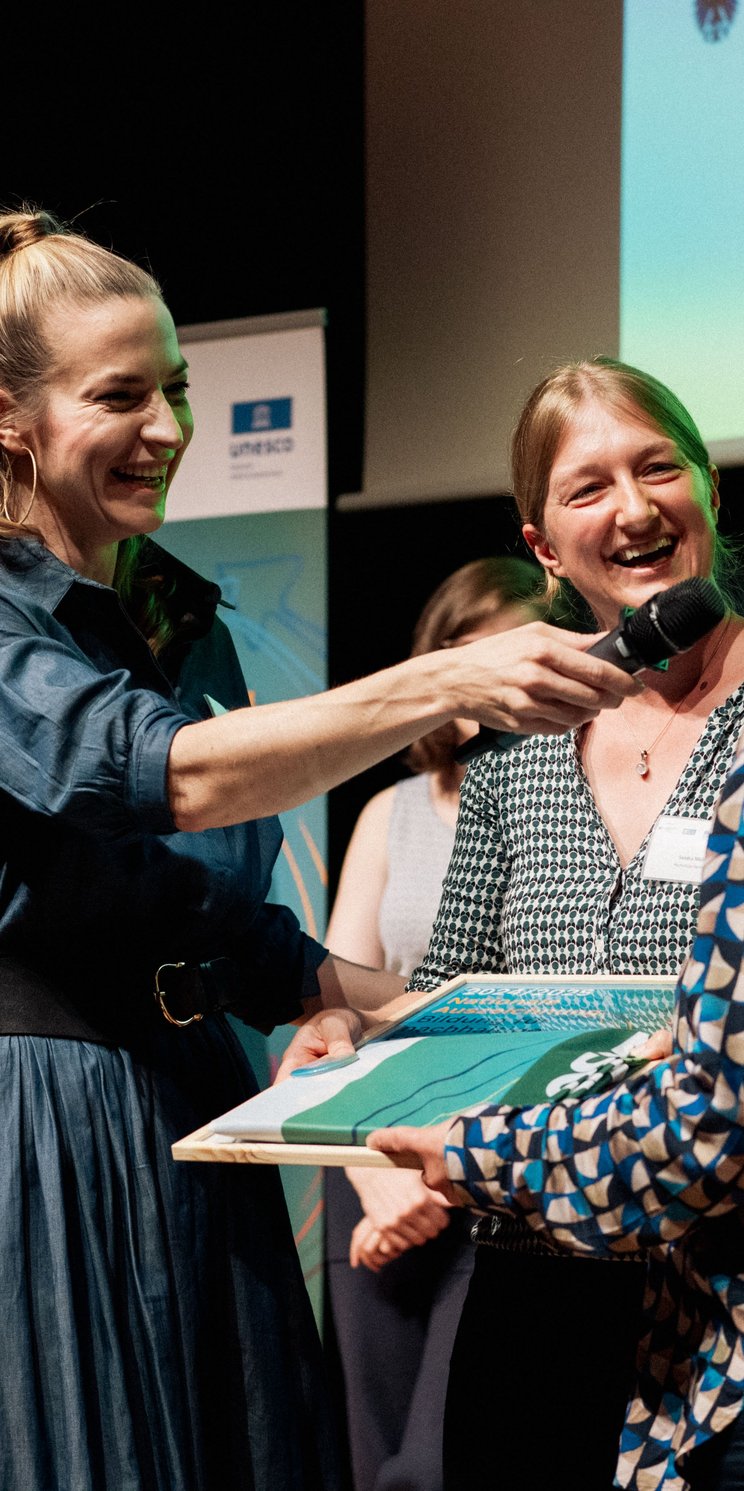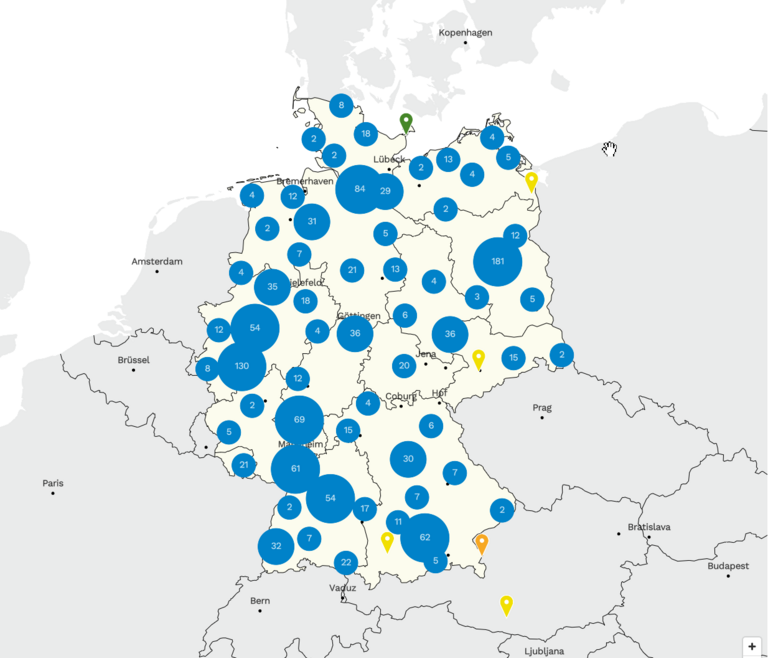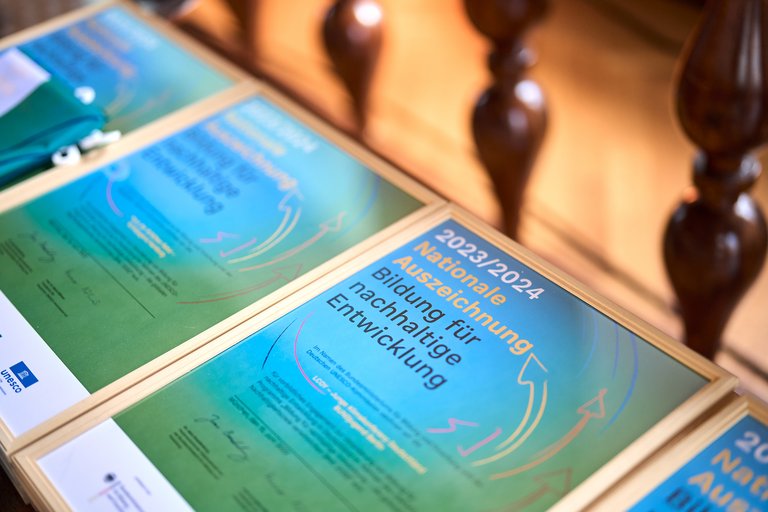BNE- Auszeichnung
-
Deutsche UNESCO-Kommission
- Phone:
- +49 228 60497-213


This National Award honours organisations, institutions, companies and initiatives that contribute to a sustainable society with innovative educational programmes and promote the United Nations' global Sustainable Development Goals (SDGs).
The National Award is aimed at stakeholders from all areas of education who shape their work, their institution or their community as a place of sustainable development. Awards are given, for example, to daycare centres, schools, universities, companies, associations, networks and communities or individuals who implement Education for Sustainable Development in innovative ways – regardless of whether they are just starting out or have been active for many years.
The National Award is part of UNESCO's ‘ESDfor2030’ programmeExternal link: and raises public awareness of the initiatives' commitment. It honours high-quality educational approaches that support the goals of the Agenda 2030 and highlights how education contributes decisively to the transformation towards a more sustainable future.
The award boosts the visibility and impact of the initiatives and honours the winners at public events. It provides easier access to an active network of dedicated players in Germany and around the world.

How does the ESD network in Germany look like? Would you like to learn more about Education for Sustainable Development in Germany or be inspired by good practices?
The ESD stakeholder mapExternal link: provides a comprehensive overview of the commitment in Germany – including all award-winning initiatives and prize winners. The map invites you to browse and provides insight into a variety of approaches to how education can promote a sustainable future.
Throughout the year, interested parties from across Germany can apply for the ESD Award. Applicants begin by creating a profile on the ESD stakeholder map. These are then reviewed by a panel of external experts.
Evaluation criteria include, for example:

In addition to the National Award, the German Commission for UNESCO and the Federal Ministry of EducationExternal link: also present the National Prize for Education for Sustainable Development.
Every two years the ESD Prize honours particularly outstanding and innovative projects that serve as beacons for Education for Sustainable Development in Germany and have a supra-regional impact. While the National Award honours a broad spectrum of actors and also encourages initiatives at the beginning of their engagement, the ESD Prize is aimed at particularly effective pioneers with exemplary character. The ten winners get a Prize money of 10.000€ each.

-
Deutsche UNESCO-Kommission